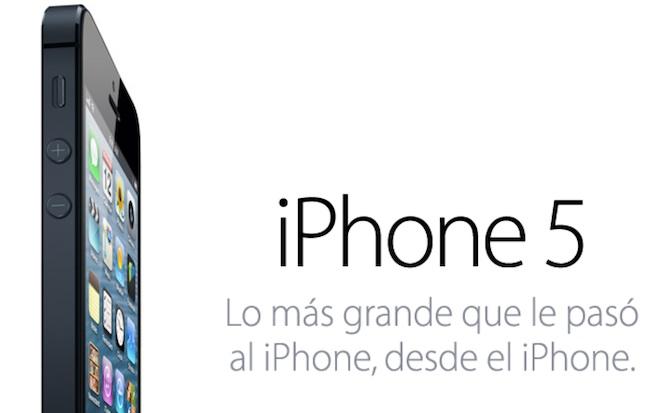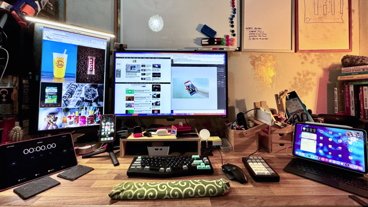A court in Mexico has ruled that the name iPhone is too similar phonetically to local brand iFone, and has denied Apple's appeal to cancel one of the Mexican company's trademark rights.
Update: A report from The Verge explains that Apple has not been stripped of the "iPhone" moniker in Mexico, as the dispute pertains to a lost appeal to have iFone relinquish rights to a certain class of trademark. This article has been updated to reflect the new information.
As you'd expect, companies like Apple file to protect ultra valuable trademarks like "iPhone" in every class they can come up with an argument for, since it protects against infringement and brand dilution. That's where iFone comes in — it has a single Mexican trademark on the word "iFone" in Class 38, which covers telecommunication services. Apple runs a few of those, like iMessage and FaceTime, and indeed, it has a Class 38 US trademark on "iPhone."Apple already owns two iPhone trademarks in Mexico in Class 9 and Class 28, which covers electronic game devices. But in 2009, Apple's lawyers decided iFone's Mexican Class 38 mark wasn't being actively used, and they filed a lawsuit to try and get it canceled so they could register their own pending Class 38 mark on "iPhone." iFone obviously disagreed and convinced the Mexican courts that they were still using the mark in commerce, which is where today's ruling comes from — Apple lost another round of appeals trying to cancel the iFone mark in Class 38.
The iFone trademark was registered in 2003, four years before the launch of the first iPhone, as noted by Electronista. Apple's courtroom loss actually stems from a suit filed by the company itself in 2009, in an attempt to stop the iFone brand from using its name.
Apple has tried and failed to obtain the iFone name after the first-generation iPhone debuted. After Apple's setback, iFone countersued and sought damages, though that trial is still pending.
iFone sells communications systems and services, including IP-based telephony, virtual office services, and software for switching systems.
Apple did not own the iPhone trademark when it introduced the device in 2007. Following the product's announcement, Cisco suedfor infringement, but the two companies reached a settlement a month later.
Apple also did not own the name in 2010, as Fujitsu released the first product to carry that name in 2002. Days before Apple's iPad was announced, the Cupertino, Calif., company acquired the trademark from Fujitsu.
While those matters were settled quickly, ownership of the iPad name in China proved to be a more complicated battle for Apple. After a months-long dispute, Apple finally obtained the iPad trademark from a company named Proview for $60 million this July.
 Slash Lane
Slash Lane







-m.jpg)






 Malcolm Owen
Malcolm Owen
 Christine McKee
Christine McKee

 Amber Neely
Amber Neely













64 Comments
And "iTelephono"?
Forget the alternate spelling. Just keep it spelled "iPhone", and change the Spanish product pronunciation to "eep-HO-neh" in Spanish.
The iPhone is a misleading name. Its a phone, sure, but is that it's main function?
Mexican people don't know the difference between an "F" and a "PH?
Seriously, who is going to confuse iFone with an iPhone?
What does the ruling mean, that Apple will have to change the name of the iPhone in Mexico or something? That sounds ridiculous, and that is obviously not going to happen.
Screw that, Mexico is not an important country and I doubt that they are an important market for Apple, and I would suggest that Apple also pull out of Mexico. Heck, it wouldn't bother me if Apple were USA only from now on. Apple would still be a very profitable company if that were to happen, just on a smaller scale. The bigger Apple gets, the less the stock market seems to appreciate Apple. Let the foreigners all buy Android phones or Windows phones, because they wouldn't have any other choice.
The iPhone is a misleading name. Its a phone, sure, but is that it's main function?
iVrything.